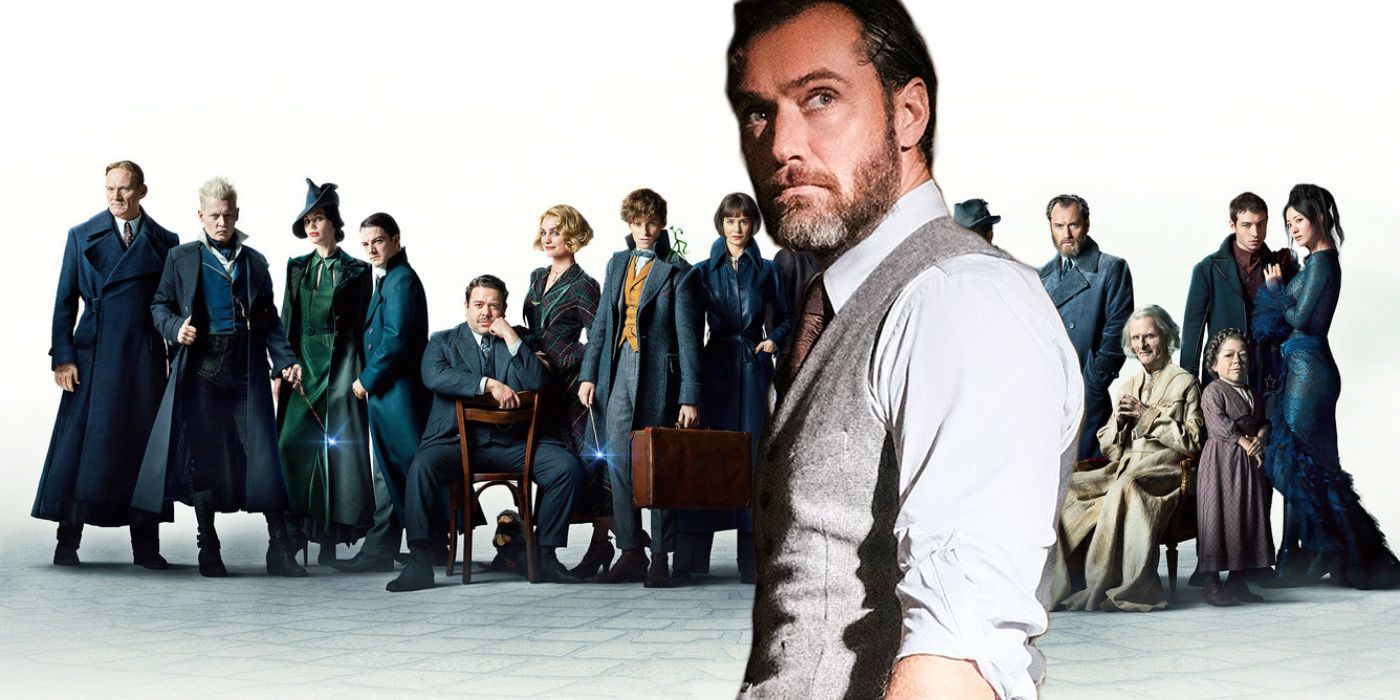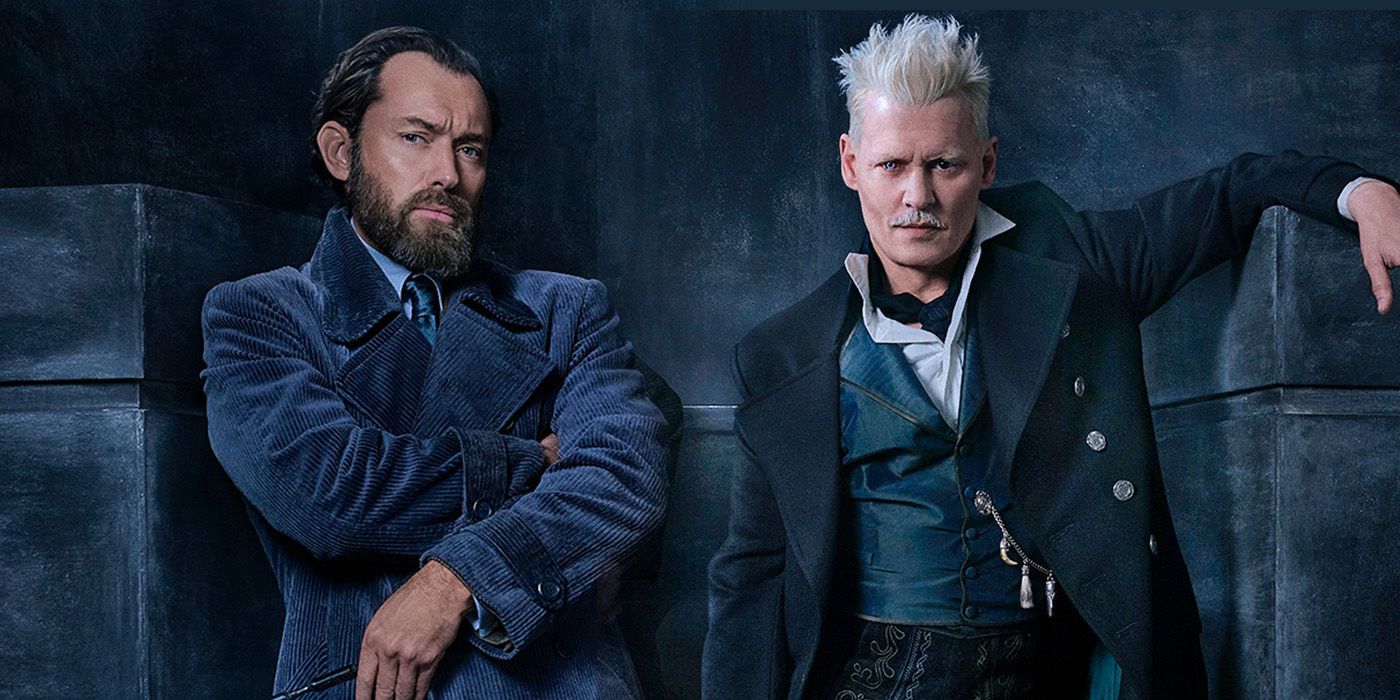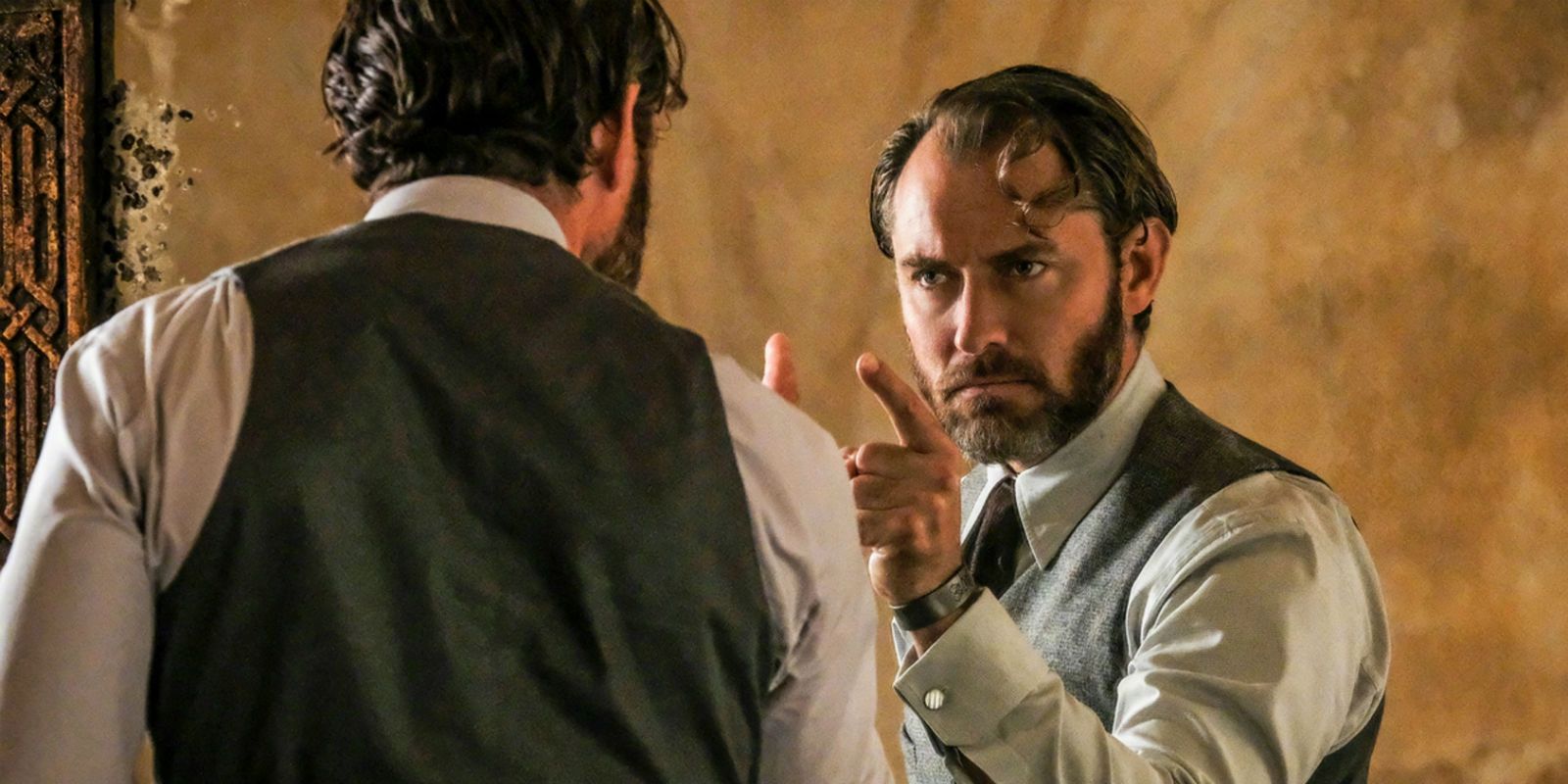Fantastic Beasts: The Crimes of Grindelwald made a strong case that Jude Law’s Dumbledore should be the series' protagonist, rather than Newt Scamander. Despite the fact that The Deathly Hallows novel and movie filled in parts of Dumbledore’s murky past, the enigma of his character is still debated – and speculated upon – by Potter enthusiasts to this day.
Since its release, The Crimes of Grindelwald’s pacing, plot and its revelations, have been met with a decidedly mixed response. Yet few of these criticisms extend to Law’s iteration of Dumbledore. From his meeting with Newt Scamander (Eddie Redmayne) in London, to his brooding in front of the Mirror of Erised, Law commands the screen in a way that few other actors are able to do within the film. He doesn’t just add fresh layers to Dumbledore; he is also utterly convincing as a younger version of the famously venerable wizard. Thanks to his precise and wry line delivery, Law channels the intelligence, the serene power, and that twinkling mischievousness of Richard Harris’ beloved portrayal, but also with some of the steel of Michael Gambon's version.
Related: Fantastic Beasts' Biggest Problem Isn't J.K. Rowling's Scripts - It's The Director
Law’s screen time is limited, but impactful - and it’s clear that many fans wanted to see more of him throughout The Crimes of Grindelwald. Of course, the second Fantastic Beasts movie is clearly setting Law’s Dumbledore up for an even larger role as the franchise progresses. But based on The Crimes of Grindelwald alone, it’s clear that this prequel series should have always been Dumbledore-centric.
In his brief appearances, it’s evident that JK Rowling relishes writing Dumbledore. Thanks to her enthusiastic writing, the film's Dumbledore scenes display some of the savviest and most entertaining character work in the series thus far. The sequence in which Dumbledore’s pupils refuse to be dismissed by Ministry officials – until Albus confirms that they need to leave – is an example of this. It's not only a funny moment; it serves as a clear demonstration of Dumbledore's power and position. Law’s Dumbledore is the series’ most defined character, and if he had been at the forefront of Fantastic Beasts since its beginning, the two films would have been stronger by extension. Additionally, the fact that Dumbledore’s been side-lined has also allowed the filmmakers to dance around his relationship with Grindelwald. If Dumbledore was Fantastic Beasts' hero, they would be forced to tackle his sexuality – something which has frustrated many fans and critics who are yearning for LGBTQ representation in the franchise.
Whilst some may argue that Solo: A Star Wars Story was a cautionary tale about detailing the pasts of iconic and mysterious characters, this is a false equivalency. Han Solo’s past as a space smuggler was embroidered over decades worth of material, which irritated fans because the film check-listed many key aspects that they already knew. The Harry Potter series partly illuminated the Hogwarts Headmaster’s early days, but only through second-hand accounts. This meant that most of his past was ill-defined and ripe for embellishment. Certainly, through the blood pact – and the possible inclusion of Fawkes – Rowling has developed a whole new aspect of Dumbledore’s heritage, and has surprise audiences that assumed they already knew his story.
Moreover, its common knowledge that the fifth movie will showcase Dumbledore’s legendary duel with Grindelwald (Johnny Depp) in 1945. According to Harry Potter canon, this was the first time that the two wizards had met each other since they were teenagers. Initially, this seems to constrain storytelling possibilities for the deadly enemies. Yet there is a lot of potential to be had in watching Dumbledore taking Grindelwald down through subterfuge – and maybe even forming the first Order of the Phoenix against his foe – when he cannot confront the dark wizard himself. This plot line is referenced by Torquill Travers (Derek Riddell) during his meeting with Dumbledore, when the Auror alludes to Dumbledore’s allies all over the world. But these ideas – which could form the basis of the entire series – are short-changed, because Albus must share his screen time with the film’s other characters.
As we know, Newt, Jacob Kowalski (Dan Fogler) and sisters Tina and Queenie Goldstein (Katherine Waterston and Alison Sudol) are Fantastic Beasts’ main characters. Yet it feels as if they are tangential to the core Dumbledore/Grindelwald plot. It’s particularly noticeable when we consider how key Dumbledore is to the prequel movies already. Not only did he instigate the first film’s plot by sending Newt to New York, Dumbledore is also the main reason that Grindelwald strives to manipulate Credence (Ezra Miller) across the two movies.
Related: Fantastic Beasts 2's Dumbledore Twist Is A Dangerous Retcon (But Also Brilliant)
Moreover, the Credence/Aurelius revelation is a plot point that will ultimately impact Albus far more than it will affect the secret Dumbledore himself, who is one of the Wizarding World’s newest main characters. It’s certainly true to Dumbledore’s character that he is aloofly orchestrating events. But when Newt and his friends have little time to be fleshed out themselves, Dumbledore becomes more compelling, whilst the newcomers feel increasingly superfluous.
This is not to say that Eddie Redmayne’s Newt Scamander shouldn’t be central to the series. The Lord of the Rings movies demonstrate that great stories can be told about humble protagonists being swept up in conflicts that they are ill-equipped for. But if this was the intended plot line, Dumbledore needed to have been positioned alongside Newt from the very start, as Gandalf was with Frodo Baggins.
Moreover, Newt and Dumbledore’s relationship is one of the most intriguing in Fantastic Beasts. In their interactions so far, there is clearly a sense of mutual respect. Yet it is obvious that Newt is unwilling to tolerate Dumbledore’s Machiavellian practices. Putting both Dumbledore and Newt together throughout the entirety of the Fantastic Beasts movies would be a fascinating way to interrogate Dumbledore's character by using Newt as his foil. But as it stands, Fantastic Beasts: The Crimes of Grindelwald exists as a stark reminder that the franchise has squandered some of its rich potential, in the form of Jude Law’s young Albus Dumbledore.



